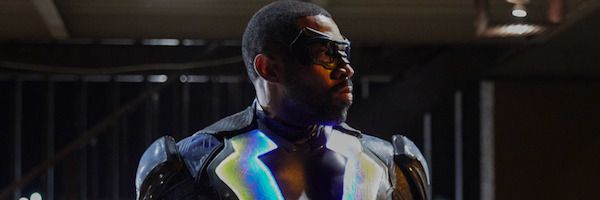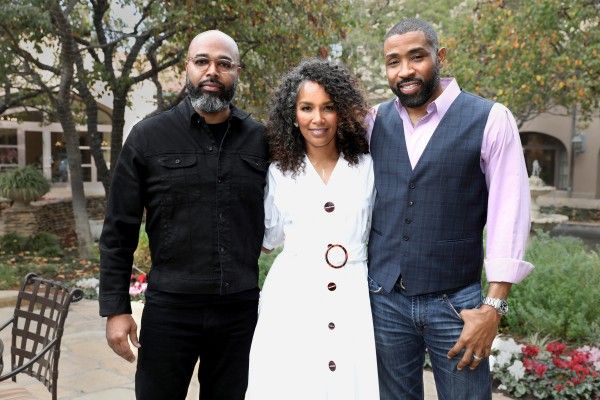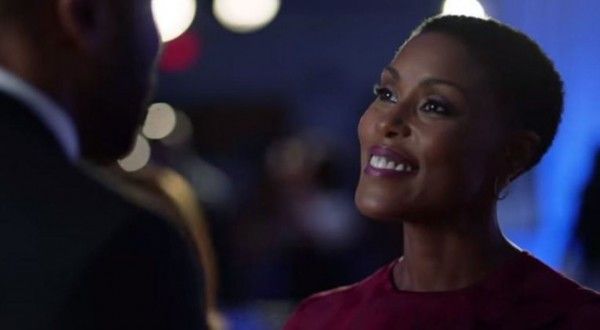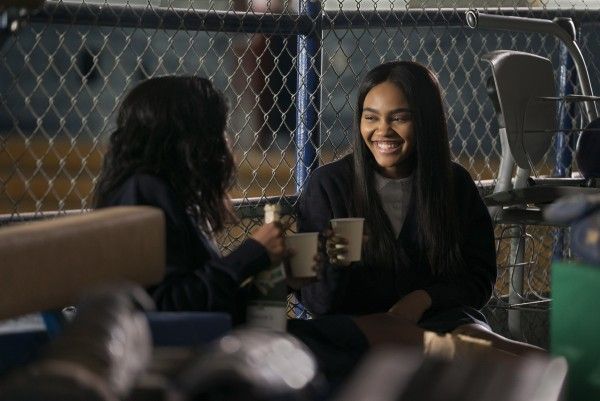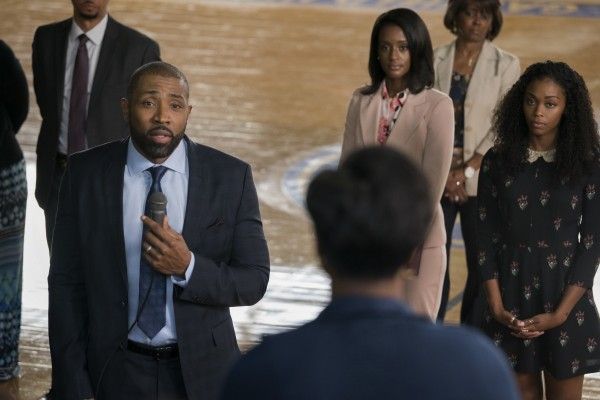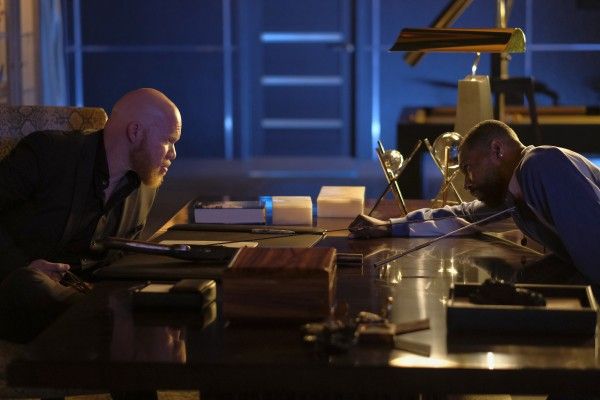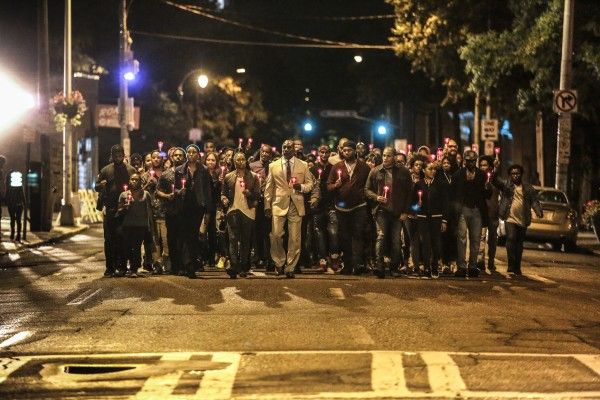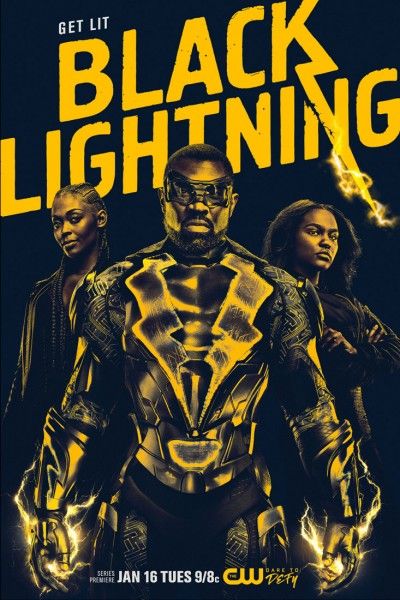Based on the characters from DC Comics, The CW series Black Lightning follows Jefferson Pierce (Cress Williams), the father of two daughters (Nafessa Williams and China Anne McClain) and the principal of a charter high school, who also happens to be the masked vigilante Black Lightning. Gifted with the superhuman power to harness and control electricity, Pierce struggles to find a balance between using his power as a superhero to protect young people and families in a neighborhood overrun by gang violence, and being there for his family.
While at the TCA Press Tour presentation for The CW, Collider got the opportunity to sit down with showrunner Salim Akil to chat 1-on-1 about his vision for Black Lightning, why he waned to show the consequences of violence, what returning to being a superhero means for Jefferson Pierce, the show’s family dynamic, villains, and why he wanted to direct the pilot.
Collider: I love how Black Lightning sets itself apart from the other DC superhero shows. Is that intentional? Is that how you wanted to approach this?
SALIM AKIL: Yeah. I asked myself, if I was gonna do a superhero show, what I wanted him to do. I wanted him to fucking go into Richmond or Chicago or Watts, or whatever city was suffering from gun violence and drugs, and clean it up. I knew I had to do it a certain way, and I knew I had to do it as honestly as I could. I didn’t want to do a show where violence was impersonal, or where you could watch it and never notice it. I wanted to do a show where, when the violence happened, you were like, “Oh, shit!” So, when we first had the idea to shoot LaWanda, everybody was like, “No, you can’t shoot a mom!” But we did, and I think people will feel it because that character felt so real. That actress did such a great job. So, yeah, I did want it to be a completely different type of feel.
Is that also why you are showing the consequences of the violence?
AKIL: Episode 3 is called “LaWanda: The Book of Burial” ‘cause we bury her. Just because she died in Episode 2, she doesn’t go away. We see the consequences on the community and how they react to it. I don’t think I’ll ever do a show with violence where there’s no consequences ‘cause I know the consequences. I’ve experienced them. I’ve worked in a mortuary and seen the consequences of what guns and knives do to people. I’ve buried people. I’ve held people in my arms who were bleeding from gunshot wounds. There’s no way for me to disassociate myself from that and make it look pretty.
Jefferson Pierce has taken nearly a decade off from superheroing, before having to bring Black Lightning back. What kind of affect does that have on him?
AKIL: If you’ve got lightning bolts coming out of your veins, you can’t just go take Tylenol. Throughout, you’ll see him popping a pill or two. That’s what happens. But the biggest affect is on his relationship with Lynn. They were close to getting back together, and now he’s jumping back in. In the series, that’s the biggest result of him using his powers, a decade later.
I love how sexy the relationship between Jefferson and Lynn is, and it’s great that you’re taking the time to show that on a superhero show.
AKIL: We’ve gotta do it. We hang in there with it. We have to be a comic book show, but as much as we can keep it grounded in family and a certain degree of realism, I’ll be happy. I love them. They’re just a cool couple. They’re trying their best to make it work, but circumstances just keep pulling them apart.
When you think about this show, is the superhero aspect something you always have to think about, or is it the think you have to remind yourself of?
AKIL: I have to remind myself, constantly. All the writers are great, but Charles Holland, Jan Nash and Pat Charles are always reminding me, “Salim, they’ve gotta use their powers!,” and I’m like, “Okay!” I’ll walk in the room and they’ll say, “And he’s gonna do this!” And I’ll be like, “Who does that?!” And they go, “You do know he’s a superhero, right?!” I constantly have to remind myself that he’s got powers. Then, it becomes fun when I figure out what to do with them.
We see the issues that Jefferson Pierce has with being a superhero, so how will he feel when he finds out that his daughters have powers?
AKIL: Lynn feels like Jefferson gets addicted to his powers. Imagine being a father and a mother, and thinking that your husband or ex-husband was addicted to something, and now you see your daughters going down the same road. It makes Jefferson re-examine who he is. He’s been out of the game for awhile, but getting back in, there have been some dangerous moments. They both can see the future for their daughters, and that’s scary. That’s when you really get down to the family aspect of it and go, “Damn! Shit! Not only me, but my daughters?! How do I handle this? What do I do with this?” That will be a big question for him, as the series goes on. If you have powers, you’re gonna use them, so it’s gonna be interesting, for both of them.
We’ve seen that Lala leads to Tobias, and we know that there’s also Lady Eve, played by Jill Scott. What can we expect from this female villain?
AKIL: What I like about Lady Eve is that she’s a boss, and that’s all I wanted her to be. You thought Lala was it, but Lala had a boss. Then, you think he must be it, until you find out, “Oh, shit, this is the boss!” I just thought that was empowering for young girls to see, but also women, in general. Women, throughout this show, are empowered. They’re rollin’ with the guys. They’re right there with them. There’s one sexy girl in it, and she’s Tobias’ bodyguard. I hope even she isn’t affected by the male gaze. I try to not use the male gaze, in order to feminize the characters. I try to make it an egalitarian atmosphere for everyone. So, you can expect for Lady Eve to be a boss and to rule. Jill is amazing! She’s great. I love her.
You also directed the pilot for this. Was that because the vision you had for this show was so strong that you wanted to make sure you set it up?
AKIL: Yeah. I just couldn’t see anybody else doing it. I wanted it to be as real and as emotional as it possibly could be, and I wanted it to have a cinematic tone to it. I wanted you to feel like you were just watching a movie, from episode to episode. I knew that I could do things, as a writer and director, that another director probably couldn’t do. To me, the details of our lives and the culture really matter. Yes, it’s black culture, but it’s American culture. That’s what I’m trying to present this as. Of course, they’re black, but it’s also American culture, with the music and the lingo. I think it’s time for people to say, “That’s us, and I’m proud of this shit! This is my culture!”
Black Lightning airs on Tuesday nights on The CW.

